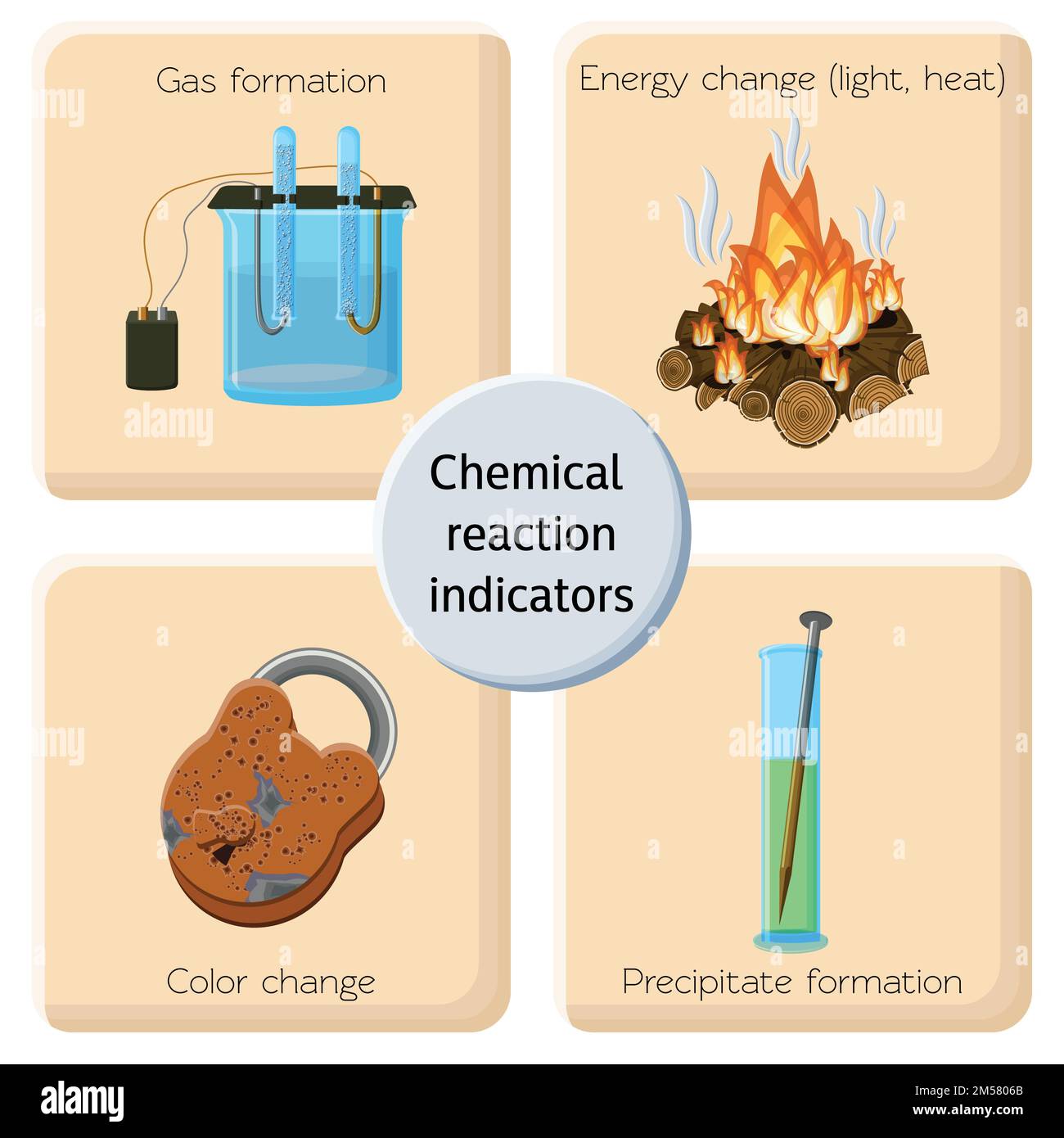So here's the deal, let's dive straight into something super cool that's happening all around us every single day. Light heat chemical and magnetic changes are all produced by a wide range of natural and human-made processes that shape our world in ways we often overlook. Think about it, these transformations are the driving forces behind everything from the simplest chemical reactions to the most complex technologies we rely on daily. These changes arent just random occurrences; they're the building blocks of science that define how our universe operates.
Imagine this: you're sitting in your room, the sun is shining through the window, your phone is charging, and there's a faint hum from the fridge. In that one moment, multiple forms of energy are being converted and transformed right before your eyes. The sunlight bringing warmth, the chemical reactions inside your phone's battery, and the magnetic fields generated by the electrical appliances. It's like a symphony of science playing out in your everyday life.
Now here's the kicker, understanding these processes isn't just for scientists in lab coats. Grasping how light heat chemical and magnetic changes are all produced by different phenomena can help you appreciate the world around you on a deeper level. Whether you're into tech, nature, or just curious about how things work, this knowledge opens up a whole new perspective on the everyday miracles happening around us.
- Ken Wahl Today The Iconic Actors Journey Life And Legacy
- Kylie Jenner Race Exploring The Journey Of One Of The Most Iconic Faces In Pop Culture
What Exactly Are Light Heat Chemical and Magnetic Changes?
Alright, let's break it down. These changes refer to the transformation of energy from one form to another. Light energy can be produced by various sources like the sun, bulbs, or even fireflies. Heat energy is generated through combustion, friction, or electrical resistance. Chemical changes happen when substances react to form new compounds, like rust forming on iron or baking a cake. Magnetic changes occur when electric currents or moving charges create magnetic fields. All these processes are interconnected in fascinating ways.
How Light Heat Chemical and Magnetic Changes Are All Produced By Energy Conversion
Energy conversion is the magic behind all these changes. When you turn on a light bulb, electrical energy is converted into light and heat energy. In chemical reactions, energy is absorbed or released as bonds break and form. Magnetic fields are generated when electric currents flow through wires. Each of these transformations follows specific laws of physics and chemistry, creating the dynamic world we live in.
Examples of Energy Conversion in Everyday Life
- Your car engine converting chemical energy from fuel into mechanical energy
- A solar panel transforming sunlight into electricity
- A microwave oven changing electrical energy into electromagnetic waves
- Refrigerators using compression and expansion cycles to transfer heat
The Science Behind Light Production
Light is produced through several mechanisms. Incandescence occurs when materials are heated to high temperatures, emitting light. Luminescence involves the release of light through chemical reactions, like in glow sticks. Electroluminescence happens when electric current passes through materials, as seen in LED lights. Each method demonstrates how different forms of energy can be converted into visible light.
- Early Virginia Madsen Rising Star To Hollywood Icon
- Did Lebron Die Debunking The Rumors And Exploring The Truth
Key Factors Influencing Light Production
- Material properties affecting light emission
- Temperature levels required for incandescence
- Chemical compositions in luminescent reactions
Heat Generation and Transfer Mechanisms
Heat is produced through various processes including combustion, friction, and electrical resistance. The transfer of heat occurs through conduction, convection, and radiation. Understanding these mechanisms helps in designing efficient systems for heating and cooling. Whether it's the warmth from a campfire or the cooling effect of an air conditioner, heat transfer principles are at play.
Practical Applications of Heat Transfer
- Industrial furnaces using conduction for metalworking
- Air conditioning systems utilizing convection for temperature control
- Thermal insulation materials reducing heat loss through radiation
Chemical Changes: The Science of Transformation
Chemical changes involve the reorganization of atoms to form new substances with different properties. These reactions can be exothermic, releasing energy, or endothermic, requiring energy input. Common examples include rusting, combustion, and digestion. Chemical reactions are essential for life processes and industrial applications.
Types of Chemical Reactions
- Synthesis reactions combining two substances into one
- Decomposition reactions breaking down complex molecules
- Single and double displacement reactions exchanging atoms
Magnetic Field Generation and Its Impacts
Magnetic fields are generated by moving electric charges or permanent magnets. Electromagnetism is the principle behind motors, generators, and transformers. The Earth's magnetic field protects us from harmful solar radiation. Understanding magnetic phenomena helps in developing advanced technologies like MRI machines and maglev trains.
Applications of Magnetic Fields
- Electric motors using electromagnetic induction
- Hard drives storing data through magnetic domains
- MRI machines imaging body tissues using magnetic fields
The Interconnection of Light Heat Chemical and Magnetic Changes
All these changes are interconnected through the fundamental laws of thermodynamics and electromagnetism. Energy transformations in one form often lead to changes in other forms. For instance, a burning candle demonstrates light and heat production through a chemical reaction. This interdependence highlights the unity of natural processes.
Unified Principles Governing Energy Changes
- Conservation of energy in all transformations
- Entropy increase in natural processes
- Electromagnetic spectrum linking light and magnetic phenomena
Impact on Technology and Daily Life
Understanding how light heat chemical and magnetic changes are all produced by energy transformations has revolutionized technology. From LED lighting to electric vehicles, these principles are applied in countless ways to improve our lives. Advances in renewable energy, medical imaging, and communication technologies all rely on mastering these scientific concepts.
Emerging Technologies Based on Energy Transformation
- Solar power satellites converting sunlight into electricity in space
- Quantum computing utilizing magnetic properties for data processing
- Thermoelectric materials generating electricity from heat differences
Future Directions and Research Opportunities
Research continues to explore new ways of harnessing and transforming energy. Scientists are investigating more efficient methods for producing light, generating heat, facilitating chemical reactions, and manipulating magnetic fields. These advancements hold promise for addressing global challenges like climate change and energy shortages.
Potential Breakthroughs in Energy Transformation
- Artificial photosynthesis for clean energy production
- Superconducting materials enabling lossless electricity transmission
- Advanced catalysts speeding up chemical reactions
Conclusion: Embracing the Science of Change
So there you have it, the incredible world of light heat chemical and magnetic changes explained. These processes aren't just scientific concepts; they're the foundation of our modern world. By understanding how these transformations work, we gain insights into the natural laws governing our universe and the technologies shaping our future. Next time you flip a switch or watch the sun rise, take a moment to appreciate the complex energy conversions happening right before your eyes.
Now here's what I want you to do: share this knowledge with others. Whether it's discussing these concepts with friends, exploring related topics further, or simply paying more attention to the science around you, let's keep the conversation going. And if you enjoyed this deep dive into the fascinating world of energy transformations, be sure to check out more articles on our site. Together, let's continue learning and growing in our understanding of the amazing science that shapes our world.
Table of Contents
- What Exactly Are Light Heat Chemical and Magnetic Changes?
- How Light Heat Chemical and Magnetic Changes Are All Produced By Energy Conversion
- The Science Behind Light Production
- Heat Generation and Transfer Mechanisms
- Chemical Changes: The Science of Transformation
- Magnetic Field Generation and Its Impacts
- The Interconnection of Light Heat Chemical and Magnetic Changes
- Impact on Technology and Daily Life
- Future Directions and Research Opportunities
- Conclusion: Embracing the Science of Change



Detail Author:
- Name : Mr. Alford Schoen II
- Username : demarco74
- Email : connelly.brain@yahoo.com
- Birthdate : 1980-04-30
- Address : 33325 Rosalia Forge Suite 386 North Leonoraborough, WA 36977
- Phone : +1 (870) 929-8552
- Company : Feest-Stiedemann
- Job : MARCOM Manager
- Bio : Corrupti rerum ut iure est enim facilis molestias. Qui harum eaque eos. Eum nisi praesentium assumenda qui.
Socials
facebook:
- url : https://facebook.com/kiara5388
- username : kiara5388
- bio : Rerum neque nobis expedita maxime rerum. In autem voluptatem non rerum.
- followers : 2733
- following : 374
instagram:
- url : https://instagram.com/khettinger
- username : khettinger
- bio : Debitis ullam et ipsa inventore. Amet nulla consequatur et. Est excepturi aut cumque.
- followers : 826
- following : 912
tiktok:
- url : https://tiktok.com/@kiara8268
- username : kiara8268
- bio : Fugiat necessitatibus quo est non ducimus.
- followers : 3414
- following : 1487